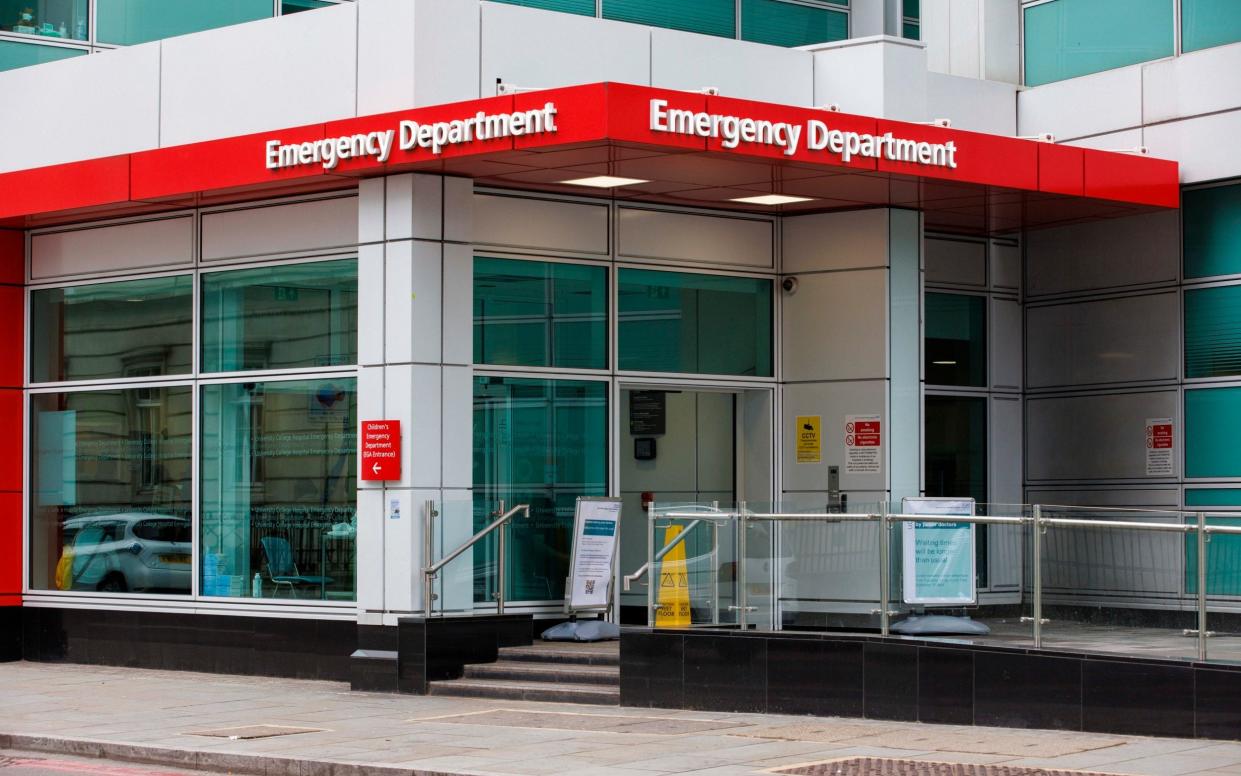One in 10 NHS patients facing A&E waits of over 12 hours

One in 10 patients is facing “dangerous” waits of more than 12 hours in accident and emergency (A&E) departments, according to new data revealing the true state of the NHS.
The figures, published for the first time by NHS England, show three times as many long waits as previously admitted.
Until now, health officials only counted 12-hour waits after a decision to admit a patient, often many hours after their arrival.
In February, before junior doctors went on strike, 126,000 patients waited more than 12 hours from their arrival at A&E – 10.6 per cent of all casualty patients. Until now, existing recording methods had suggested only three per cent of patients faced such lengthy waits.
In total, 34,976 12-hour waits were counted in February, under a measure that only started the clock at the point that medics decided an admission was required.
Health officials said the statistics showed the NHS had its busiest winter yet, with record numbers of patients coming forward, on top of “hugely disruptive strike action”.
The total on waiting lists also reached a new high of 7.22 million people before junior doctors began their first round of strike action in March.
Dr Adrian Boyle, the president of the Royal College of Emergency Medicine, which has long campaigned for full data on 12-hour waits to be published, said: “We must get to work and reduce and eliminate these dangerous delays and overcrowding in emergency departments that we know are harmful to patients.”
Emergency care across the country was in a state of “crisis”, he said, with “dangerously high” levels of bed occupancy, leaving patients facing long delays when being admitted.
The age profile of those attending A&E has been broken down for the first time, showing that half of patients were over 65 and more than a quarter over 80.
A total of 8.3 million patients attended A&E departments this winter, 400,000 more than in the previous record winter. A&E attendances and ambulance call-outs for March were also the highest on record.
Rishi Sunak, the Prime Minister, has made reducing waiting lists one of his five promises for this year.
Health chiefs said steps had been taken to reduce the longest waits, with the number of people waiting 18 months falling by one-third between January and February, leaving 29,778 facing such times.
Even before this week’s strikes, 285,000 appointments and procedures have been postponed as a result of walkouts – a figure likely to double after the latest walkouts.
Prof Stephen Powis, the NHS national medical director for England, said: “The last few months have been demanding for the NHS as record numbers of patients have come forward for care on top of hugely disruptive strike action.
“Today’s data shows demand on services is not relenting, with A&E attendances and ambulance call-outs in March recorded at the highest level so far this year – even higher than a very busy January.
“But, amid the demand and industrial action, staff have progressed on key NHS priorities, with the number of people waiting the longest for elective care continuing to reduce, while for the first time ever, the NHS has also hit the faster diagnosis standard for cancer, with more patients getting a definitive diagnosis or the all-clear within 28 days.
“So while there is no let-up for services – and with almost 48 hours of strike action still to go – it remains as vital as ever that the public continue to come forward for care when they need it, using 999 in an emergency and using 111 online, and making use of the expertise of pharmacies, GPs and community services for less urgent needs.”
Ambulances took an average of 39 minutes and 33 seconds in March to respond to emergency calls such as heart attacks, strokes and sepsis, up from 32 minutes and 20 seconds in February. The target is 18 minutes.
Miriam Deakin, the director of policy and strategy at NHS Providers, said the latest figures “show the NHS is under severe and unsustainable pressure”, adding that the 12-hour A&E waits were “a real concern”.
She added that “both sides of the current pay dispute – the Government and unions – need to urgently open talks in good faith”.

 Yahoo News
Yahoo News 
